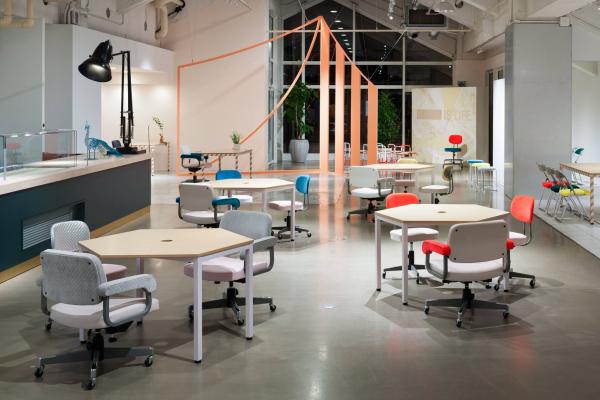Toner News Mobile › Forums › Latest Industry News › Japanese Co.Turns Counterfeit Headache Into Market Entry Strategy.
- This topic has 0 replies, 1 voice, and was last updated 9 years ago by
news.
-
AuthorPosts
-
newsKeymasterJapanese Company Turns Counterfeit Headache Into Market Entry Strategy.
by Jacob SchindlerThere is a wide range of common reactions when a company makes the all-too-common discovery that counterfeit versions of its products are being produced and sold in China. Some opt for aggressive enforcement actions, while others conclude that policing this market is not worth the money and effort. One Japanese furniture maker, though, saw an investment opportunity.
The Osaka-headquartered Kokuyo furniture company first set up a Chinese affiliate in Shanghai back in 2006, but its main focus was on supplying Japanese companies with the office supplies they were accustomed to back home, not the local consumer market. Soon, though, it caught the attention of a Taiwan-funded company called Pinghu Tailik Office Automatic & Equipment, which started producing counterfeit Kokuyo products at its Zhejiang factory. The Japanese firm responded with a course of action that many brand owners would never consider: it bought 15% of the infringing company.
Evidently, management had concluded that they needed a local partner if they were to crack the local market, and who better than a partner who was already producing similar (alarmingly so) furniture? Kokuyo says the investment was aimed at “strengthening productive capacity and designing products to meet the demands of local markets, with aims to capture Chinese office furniture domestic demand”. WTR got in contact, but a spokesperson said the company did not wish to comment further.
According to a recent story in Taiwan’s Want China Times, the strategy has paid off. The joint venture with the one-time infringer is reportedly allowing Kokuyo to sell its products at half their original price, undercutting competitors while maintaining a high standard of quality. The company’s China representative says that new offerings tailored to Chinese tastes – which run bigger and redder when it comes to furniture – have done well since hitting the market.
Kokuyo is not the first company to try this course of action. Want China Times says that an increasing number of Japanese firms are using it as a way to enter the Chinese market.
WTR has covered the case of Rovio, the maker of Angry Birds, which partnered with a number of Chinese counterfeiters, turning them into licensees. More recently, though, the Finnish developer has come to see counterfeiting as more threat than opportunity; it now employs a strict zero-tolerance stance on infringement. However, Kokuyo’s approach would seem to go even further than Rovio’s one-time policy of negotiating licences with counterfeiters: by investing in the Zhejiang company outright, it is essentially paying to bring it into the fold.
This will doubtless elicit criticism from many trademark counsel. It could be argued that Kokuyo is rewarding illegal activity, that it is undercutting the brand’s value by teaming with a questionable factory or that other counterfeiters will be encouraged to copy Japanese products in hope of securing similar deals. Maybe someday we will see an about-face like the one made by Rovio.
But Kokuyo does not appear to be a company that takes its trademarks lightly. The brand name was first adopted in 1917, whereupon it was trademarked alongside a logo featuring a rising sun and cherry blossoms. Its corporate website prominently features a page tracing the development of the group’s trading names and logos from 1917 to present. I don’t think the company’s interest in preserving the integrity of its brand can be questioned, though its methods could be. It is clear that Kokuyo’s corporate identity includes a marked emphasis on creativity, a quality that is evident in the way it decided to deal with this particular infringer.
Trademark lawyers often talk about firmly rooting a company’s IP strategy in its business strategy. If Kokuyo’s arrangement with Pinghu Tailik has been as financially successful as it claims, and returned value to the company and its shareholders, then that is exactly what they have done. And you can bet other companies will explore similar options seriously in the future.
-
AuthorApril 1, 2015 at 10:53 AM
- You must be logged in to reply to this topic.


